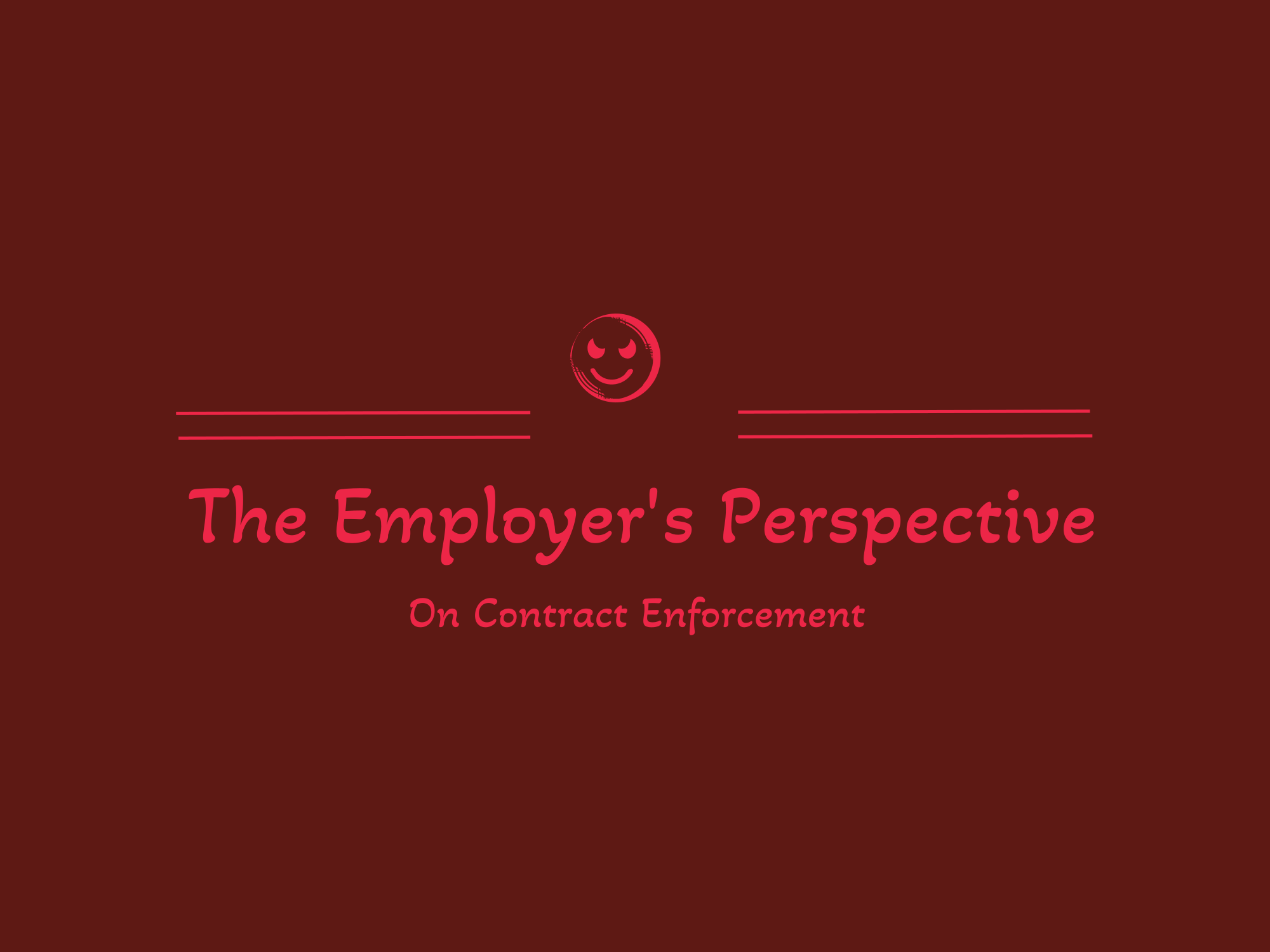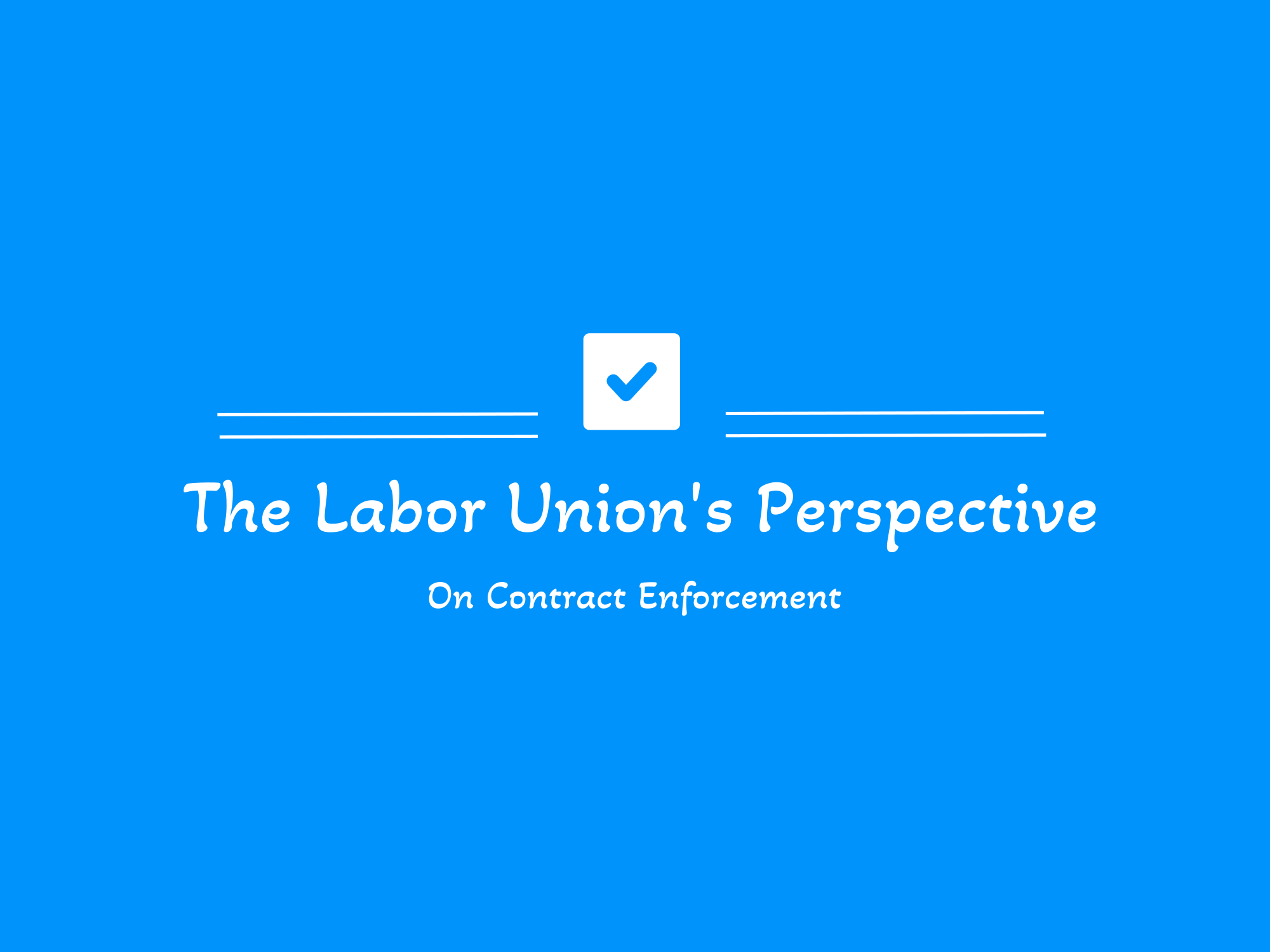Contract enforcement
A Dual Perspective from Employers and Labor Unions
In the realm of labor relations, contract enforcement serves as a critical mechanism for maintaining the balance of power between employers and employees, often represented by labor unions. Both parties have vested interests in ensuring that the terms of employment contracts are upheld, but their approaches and motivations can differ significantly. Understanding these perspectives can shed light on the complexities of labor relations and the importance of effective contract enforcement.

From the employer’s standpoint, contract enforcement is primarily about maintaining operational efficiency and safeguarding the company’s interests. Here are some key aspects of their perspective:
1. Maintaining Productivity and Efficiency
Employers often view labor contracts as essential frameworks that define job roles, responsibilities, and expectations. When contracts are upheld, it leads to a stable work environment that fosters productivity. If a labor union or employees breach a contract—by, for example, initiating an unauthorized strike—employers may perceive this as a threat to operational continuity.
2. Legal Compliance and Risk Management
Employers must navigate a complex landscape of labor laws and regulations. Non-enforcement of contracts can lead to legal repercussions and financial losses. As such, employers invest in compliance mechanisms and seek legal recourse when they believe that contract terms are being violated by union actions or employee behaviors.
3. Fostering Positive Labor Relations
Employers recognize that the enforcement of contracts is not just about punitive measures but also about fostering a positive relationship with labor unions. By engaging in good faith negotiations and honoring contract terms, employers can build trust and cooperation, which may result in smoother interactions in the future.
4. Strategic Negotiations
In the context of contract negotiations, employers are often focused on crafting terms that are sustainable for their business model. They understand that clear, enforceable contracts are vital to avoiding conflicts and ensuring that both parties can hold each other accountable.

For labor unions, contract enforcement is fundamentally about protecting the rights and interests of their members. The union’s perspective is often driven by advocacy, collective bargaining, and the pursuit of fair treatment in the workplace. Here are some elements of their viewpoint:
1. Protecting Workers’ Rights
Labor unions see contract enforcement as a means to safeguard the rights of workers. They advocate for adherence to the terms negotiated on behalf of their members, such as wages, benefits, and working conditions. When employers fail to uphold their end of the bargain, unions are likely to mobilize resources to challenge these violations.
2. Empowering Collective Bargaining
Union representatives argue that strong enforcement mechanisms encourage employers to take negotiations seriously. When workers know that their union can effectively enforce contract terms, they are more likely to participate actively in collective bargaining, believing that their rights will be defended.
3. Addressing Power Imbalances
Unions play a crucial role in leveling the playing field between individual employees and employers. By enforcing contracts, unions aim to reduce the power imbalance that often exists in employer-employee relationships, ensuring that workers have a voice and that their grievances are addressed.
4. Legal Advocacy and Grievance Procedures
Labor unions typically establish grievance procedures as part of the contract, allowing members to report violations and seek remedies. This process is vital for maintaining a fair and just workplace. Unions are prepared to pursue legal action when necessary, underscoring their commitment to enforcing the terms of the contract.
Common Ground and Challenges
While the perspectives of employers and labor unions differ, both parties ultimately seek stability and predictability in labor relations. The enforcement of contracts serves to clarify expectations and provides mechanisms for conflict resolution. However, challenges remain. Misunderstandings, misinterpretations of contract terms, and varying interpretations of labor laws can lead to disputes.


Additionally, as the workplace evolves—especially with the rise of gig economy jobs, remote work, and changing labor market dynamics—both employers and unions must adapt their approaches to contract enforcement. Technology, for instance, has introduced new ways to monitor compliance but also raises questions about privacy and fairness.
Conclusion
Contract enforcement is a multifaceted issue that requires cooperation, negotiation, and an understanding of each party’s priorities. For employers, it is about protecting their business interests and maintaining a productive workforce. For labor unions, it is a means of advocating for the rights and well-being of workers. Recognizing the importance of effective contract enforcement can lead to healthier labor relations, fostering a collaborative environment where both employers and employees can thrive. As the landscape of work continues to change, finding common ground will be essential for the future of labor relations.
Human Resources
Human Resources focuses on managing a company’s workforce. It handles recruitment, training, and employee relations. HR ensures compliance with labor laws and promotes a positive work culture. Effective HR practices improve employee satisfaction and retention. This department also manages payroll and benefits, helping employees feel valued. Strong HR support can boost overall company performance and drive success. By fostering communication and resolving conflicts, HR plays a key role in organizational growth.
Shop Steward
A shop steward is a union representative in the workplace. They act as a link between employees and management. Shop stewards handle issues like grievances, safety concerns, and contract violations. They ensure that workers’ rights are upheld and that their voices are heard. Stewards often conduct meetings to inform members about union matters. They also help resolve disputes and advocate for fair treatment on behalf of their colleagues. Their role is crucial for maintaining a healthy workplace culture.
Employer Side & union side lawyers
Employer lawyers help companies navigate labor laws and negotiate contracts with unions. They protect the company’s interests during disputes and ensure compliance with regulations. Union lawyers represent the workers, advocating for their rights and benefits. They negotiate collective bargaining agreements and handle grievances. Both types of lawyers play crucial roles in maintaining balance and fairness in workplace relations. Their work shapes how employers and employees interact and resolve conflicts.
Union Business Agent
A union business agent represents workers in negotiations with employers. They ensure fair wages, benefits, and working conditions. This role involves communicating with members and addressing their concerns. Agents also help resolve disputes and enforce union contracts. Strong negotiation skills and knowledge of labor laws are key. They serve as a vital link between workers and management, advocating for workers’ rights.
Labor Management meetings
A Labor Management Meeting focuses on key topics like staffing, productivity, and employee concerns. Managers and labor representatives discuss current issues and seek solutions. These meetings help improve communication and collaboration. They aim to address challenges and enhance working conditions. Participants share updates on projects and policies. Effective discussions can lead to better team morale and increased efficiency. Regular meetings ensure everyone stays informed and aligned. This approach strengthens the relationship between management and workers, promoting a healthier workplace culture.
Grievance Process
The grievance process in labor relations is a formal way for workers to address complaints about work conditions or treatment. It usually starts when an employee feels their rights have been violated. They submit a written grievance to their supervisor or union rep. The employer then investigates the claim and responds. If the issue isn’t resolved, it may move to higher levels, involving union officials or arbitration. This process helps maintain fair treatment and clear communication between workers and management. Effective grievance procedures can prevent conflicts and improve workplace harmony.
Mediation
Mediation in labor relations helps resolve disputes between employees and employers. A neutral third party guides both sides to find a solution. This process can save time and money compared to going to court. Mediation allows for open communication, which can lead to better understanding and cooperation. It often results in agreements that both sides can accept, fostering a more positive work environment. With mediation, conflicts can be settled quickly, helping to maintain productivity and employee morale.
arbitration
Arbitration in labor relations is a way to resolve disputes outside of court. It involves a neutral third party, known as an arbitrator, who reviews evidence and makes a decision. This process is often faster and less formal than litigation. Many labor contracts require arbitration to settle issues like unfair practices or contract violations. Both sides typically agree to abide by the arbitrator’s ruling. This helps maintain relationships between employees and employers, as it avoids lengthy legal battles. Arbitration can be less costly and provides a clear outcome for both parties.